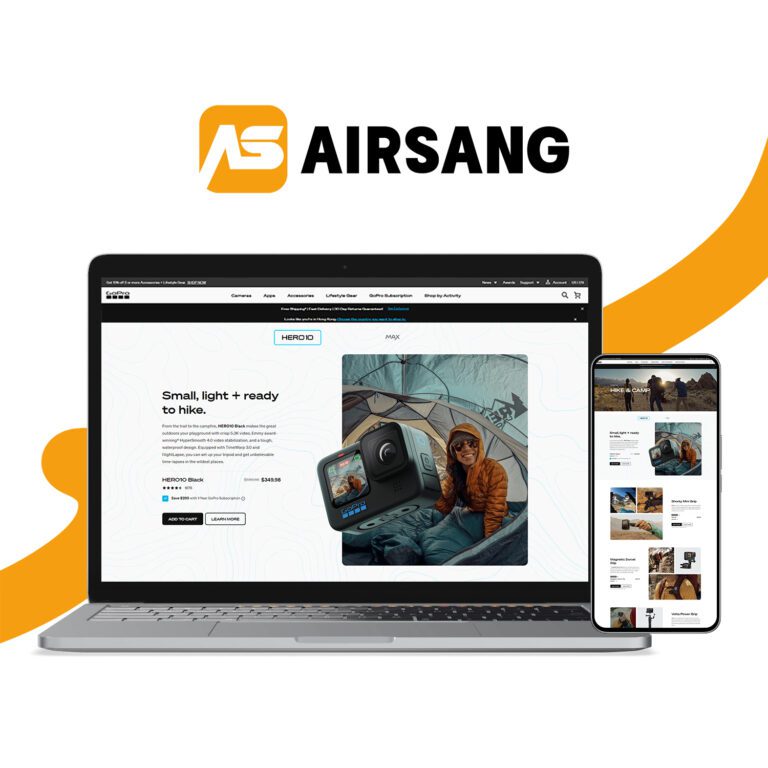Can H1B Visa Holders Have a Shopify Account in USA

Introduction
Many H1B visa holders in the U.S. wonder if they can start an online store through Shopify. The short answer is yes — but with specific rules and smart planning. In this article, we’ll explore how H1B holders can operate a Shopify business legally, and how strategic website design plays a vital role in success.
Understanding the Core Question

What Does “Having a Shopify Account” Mean?
Opening a Shopify account is simple — anyone can sign up and create an online store using Shopify’s platform. However, the legal and tax implications differ depending on your visa status.
For H1B visa holders, the issue isn’t about opening a Shopify account itself — it’s about whether managing or profiting from that store counts as unauthorized employment.
The Legal Context for H1B Holders
Under U.S. immigration law, H1B holders can only work for their sponsoring employer. That means you cannot directly engage in self-employment or run a business that requires active management.
However, you can own a business passively, as long as you’re not performing day-to-day work for it. In other words, the business can exist under your name, but it must be operated by others (employees, contractors, or partners).
This distinction is key:
- ✅ Allowed: Passive ownership or investment in a Shopify business.
- ❌ Not allowed: Personally managing sales, customer support, or marketing if you’re under H1B.
How H1B Visa Holders Can Structure a Shopify Business
1. Passive Ownership via LLC or Corporation
Many H1B visa holders set up an LLC or corporation to own their Shopify store. The visa holder can act as a shareholder or member, but not as an active employee.
You can hire a U.S. citizen or permanent resident to handle operations such as customer service, fulfillment, and marketing.
2. Appointing an Authorized Manager
Appointing a manager or co-founder to handle the day-to-day store activities ensures compliance. This person can run ads, update products, and interact with Shopify’s admin tools.
The H1B holder can provide strategic guidance or investment input, but not execute operational tasks themselves.
3. Using Shopify as a Platform, Not an Employer
It’s important to remember: Shopify is not your employer. It’s a digital platform providing eCommerce infrastructure. Having a Shopify account is similar to having a website hosting account — legal and accessible from anywhere.
This means H1B visa holders can safely own and fund a Shopify store, as long as they separate ownership from operational control.
Business and Tax Considerations
Opening a Business Bank Account
To operate in the U.S., your Shopify store will need a business bank account. This can be opened under your LLC or corporation’s name. Most banks require:
- An EIN (Employer Identification Number) from the IRS.
- Business formation documents (Articles of Organization).
- A U.S. business address.
Tax Obligations
Even if you cannot “work” for your business, you still need to file taxes for it. The LLC or corporation will have its own tax obligations, and profits distributed to you may be taxed depending on your structure.
Consulting with an immigration attorney and CPA familiar with H1B compliance is strongly recommended. They can help structure your Shopify business so it’s both legal and tax-efficient.
Website Design and Strategy: The Silent Growth Engine
While legality and structure are the foundation, design determines visibility, trust, and conversion.
Your Shopify store isn’t just a digital storefront — it’s a brand experience. This is where professional website design becomes critical.
H2B Visa or Not — Design Defines Trust
Whether you’re an H1B holder testing your first passive venture or a co-founder scaling an eCommerce brand, the store’s presentation makes or breaks your success.
A poorly designed store looks untrustworthy, even if your products are legitimate. In contrast, a well-crafted layout — with intuitive navigation, optimized product visuals, and storytelling — instantly earns consumer confidence.
Conversion-Focused Shopify Design Principles
At AIRSANG, we’ve designed dozens of high-performing Shopify stores for international entrepreneurs, including founders under various visa statuses. Our approach focuses on:
1. Clarity in Visual Hierarchy
Every section should lead the visitor toward action — from “Add to Cart” to “Subscribe.” Visual hierarchy ensures the page feels guided, not chaotic.
2. Trust Through Transparency
Shopify stores that clearly display shipping policies, contact info, and secure payment badges outperform hidden or minimal designs. For H1B business owners, this also signals compliance and professionalism to U.S. customers.
3. SEO Integration

Search visibility is crucial, especially when the owner cannot actively “hustle” on social media or local events. Our SEO-optimized designs help your store attract organic traffic even passively.
4. Global Appeal for Cross-Border Sellers
Many H1B holders cater to both U.S. and international audiences. Responsive design, currency converters, and multilingual options ensure the store performs across markets — all achievable within Shopify’s ecosystem.
Building a Shopify Store as a Passive Investor
If you’re under an H1B visa and plan to own but not operate your Shopify store, here’s how to do it effectively:
Step 1: Form Your Legal Entity
Register an LLC or corporation in a state that supports non-resident ownership (like Delaware or Wyoming). Apply for an EIN and open a business bank account.
Step 2: Hire or Partner with Operators
Find trustworthy individuals or agencies who can manage store operations. This includes product uploads, order fulfillment, and customer engagement. You can stay in a consulting capacity, offering advice without direct execution.
Step 3: Invest in Professional Store Setup
A well-designed Shopify store is your silent salesperson. Work with a professional design agency experienced in Shopify UX, branding, and conversion optimization.
The store should reflect not only your products but your values — precision, quality, and authenticity — all crucial for long-term sustainability.
Step 4: Maintain Compliance
Keep clear boundaries between ownership and employment. Don’t use your H1B work hours or employer resources to manage your Shopify store.
Set up structured accounting and documentation showing that you’re a passive investor, not an active operator.
How Website Design Enhances Legal and Strategic Safety
At first glance, website design might not seem related to visa compliance — but it subtly supports it.
A professionally designed Shopify website allows you to:
- Delegate operations confidently to others.
- Automate many business functions (marketing, email, checkout).
- Reduce your need to personally intervene — keeping you compliant.
Automation tools, consistent branding, and intelligent layouts mean the store can run smoothly with minimal day-to-day input from the owner.
For H1B visa holders, this separation between design and labor is not only smart — it’s legally safer.
Common Mistakes H1B Holders Should Avoid
❌ Treating the Store as a Side Hustle
If you personally handle Shopify orders or ads while on H1B, you risk violating visa conditions. Even small actions like managing customer chats or updating product pages count as “work.”
❌ Mixing Personal and Business Funds
Always separate business finances. Use a dedicated account and record transactions properly. This protects your immigration record and helps during future visa renewals or audits.
❌ Using Employer Time or Equipment
Running a Shopify store during your H1B employer’s work hours — even from your own laptop — can create serious compliance issues. Keep your roles fully distinct.
✅ Do This Instead:
- Build your store structure passively.
- Invest in automation and outsourced management.
- Focus on design, branding, and strategic vision — not daily operations.
Why Shopify Is Ideal for Passive eCommerce Ownership
Easy to Delegate
Shopify’s dashboard allows multi-staff access, meaning your hired team can handle everything from fulfillment to SEO.
Automation Ready
Tools like Shopify Flow, Klaviyo, and Zapier automate repetitive tasks — ideal for owners who must keep a hands-off approach.
Scalable for Investors
As your business grows, you can scale with minimal friction — expanding to Shopify Plus or integrating apps for international markets without major redesigns.
Practical Example: Turning Design into Passive Power
Let’s say you’re an H1B software engineer who invests in a home décor brand. You can:
- Register an LLC with an American partner.
- Hire an eCommerce manager to operate the Shopify backend.
- Commission a professional Shopify design that showcases your products beautifully and builds consumer trust.
Once launched, the design’s clarity, SEO structure, and visual hierarchy keep the business running with minimal manual input — allowing you to stay compliant while benefiting from ownership.
This approach turns design into your most powerful compliance tool — your store operates, markets, and sells itself.
H1B + Shopify: Combining Compliance and Creativity
Shopify gives H1B holders a bridge between professional life and entrepreneurial ambition.
You can own your dream brand legally, provided you stay within your visa rules and rely on smart systems — including great design.
The takeaway is simple:
- You can have a Shopify account.
- You can own the business passively.
- But you cannot work for it actively.
With the right structure and design strategy, your Shopify store can grow quietly, effectively, and beautifully.
Conclusion
For H1B visa holders in the U.S., having a Shopify account is completely legal — as long as you separate ownership from operational control.
By forming a compliant entity, delegating daily management, and investing in strong web design, you can turn your eCommerce idea into a passive income stream that stays within immigration rules.
At AIRSANG, we specialize in creating Shopify stores that embody trust, clarity, and conversion — helping international founders and investors launch brands that stand out and sell.
If you’re ready to build a compliant, design-driven Shopify business in the U.S., our team can turn your vision into a store that grows while you stay focused on your career.
















